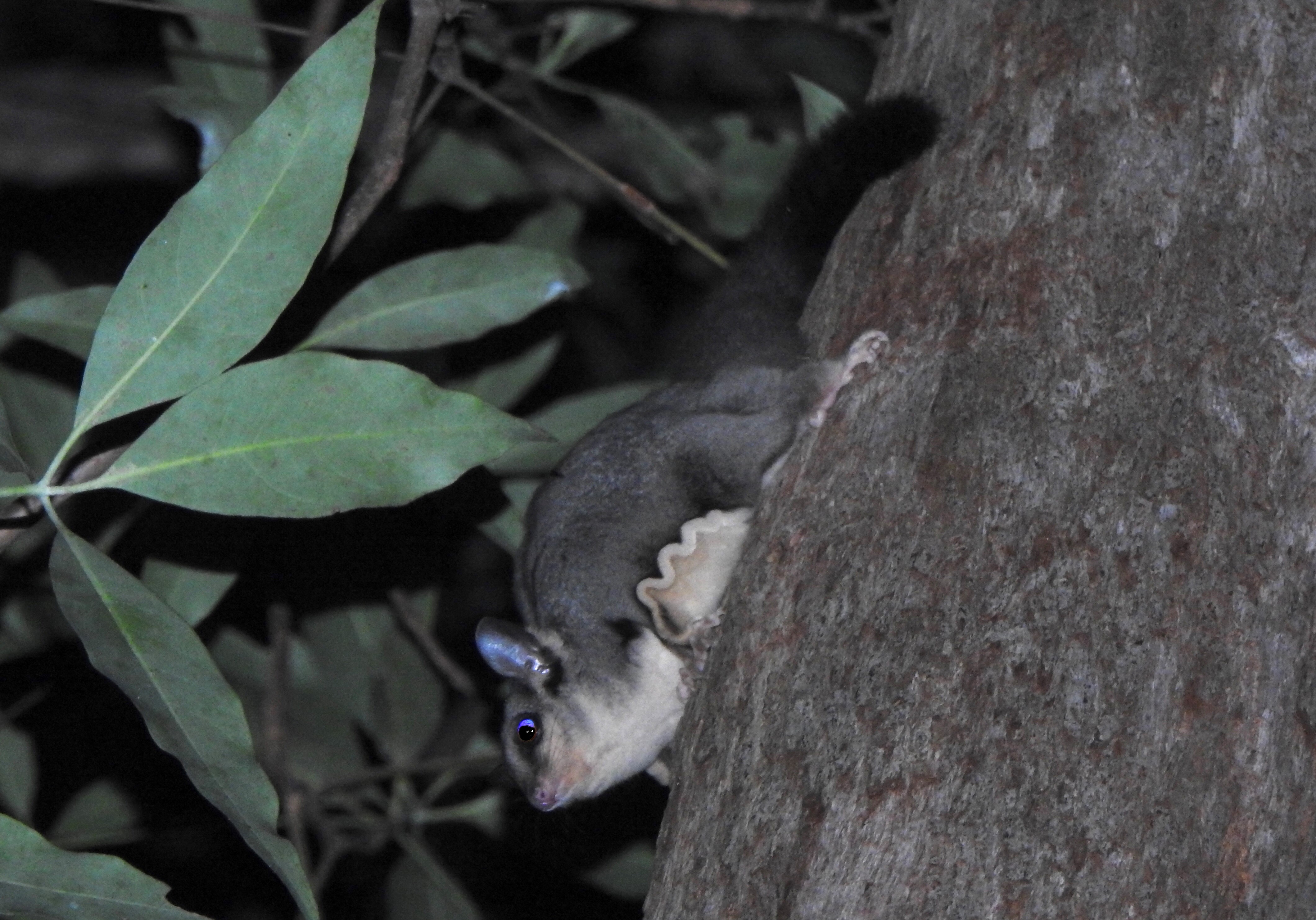Petaurus norfolcensis
Description

Squirrel Gliders (Petaurus norfolcensis) are a nocturnal (night), arboreal (tree-living) mammal that are much smaller than more common possum species. They have a head and body length of about 20 cm and weigh in the range of 190 - 300g. They have pale-grey to brown-grey fur on their back, white on the belly and have a bushy, black tail. There is a dark brown or black stripe down the middle of their backs. Squirrel Gliders are often confused with Sugar Gliders, however they can be distinguished from their much smaller cousins by their facial markings, longer angular face and bushier prehensile tail
Squirrel Gliders communicate using a soft nasal guttural call, with a babbling chatter breaking up the call. When threatened they raise the alarm by making a loud yipping noise to warn the colony.
This species of glider lives in family groups of up to 10 individuals with one or more adult females, a single adult male and their offspring. They typically start breeding in August when each female in the family produces two young. The young remain in the pouch for approximately 70 days. Young are fully grown after four months when they leave the nest to establish new colonies.
The squirrel glider is mostly threatened by the mass clearing of woodland for agriculture and forest operations due to its need for tree hollows for nesting sites. They are also targeted by introduced species such as cats and foxes.
Adaptations
- Excellent climbers
- Glide from limb to limb of trees utilising membranes of skin that stretch between their fore and hind legs
- They are capable of gliding up to 100 metres with the assistance of a downhill slope but more typically can glide 50 metres over normal terrain
- Large, light sensitive eyes allow for increased night vision
- Males have well developed scent glands on their foreheads which they use to mark their territory
Feeding relationships
- What I eat: insects (mainly beetles, stick insects and caterpillars), acacia gum, sap from certain eucalypts, nectar, pollen, honeydew and manna, Golden Wattle seeds
- What eats me: Carpet Python, Powerful Owl, fox, cat, dogs
Interesting facts
When the Squirrel glider was first described in 1792, it was incorrectly believed to have originated from Norfolk Island - hence the species name norfolcensis.